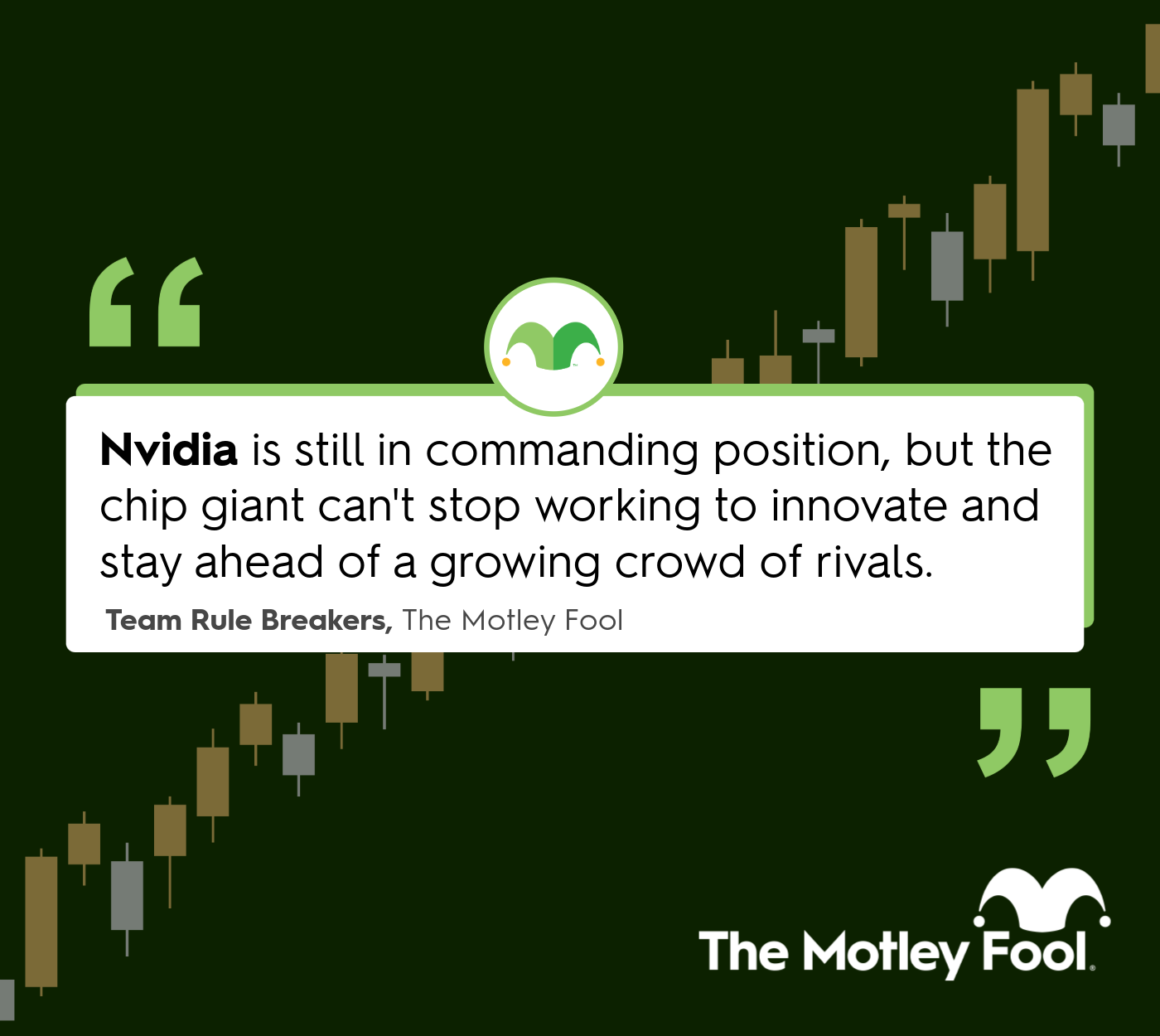Leading GPU maker NVIDIA (NVDA 2.09%) has been on the ropes lately, and its latest earnings report did nothing to stanch the bleeding. The chip space more broadly is experiencing troubles. However, in this case, the wounds are self-inflicted.
In this segment from Motley Fool Money, host Chris Hill and analysts Aaron Bush, Matt Argersinger, and Jason Moser explain how NVIDIA management erred in its production and inventory strategies, even as the surge of purchasing by cryptocurrency miners faded out and left huge oversupplies of the company's overpriced graphics processing units on retailers' shelves.
A full transcript follows the video.
This video was recorded on Nov. 16, 2018.
Chris Hill: Another rough week for Nvidia. Third quarter revenue came in lower than expected. Nvidia also lowered guidance for the fourth quarter. Shares down close to 20% on Friday. Aaron, Nvidia had a bad October, and things are looking worse now.
Aaron Bush: Yeah, this was a really terrible quarter. A lot of the headlines are blaming cryptocurrency. That was a big deal a year ago for them. But really, the bigger story is that management just screwed up. A year ago, people were buying their GPUs left and right, trying to get in on the crypto mining craze. Predictably, that demand went away, but retailers had raised prices, and they were very slow to bring prices back down. And those same chips that people were buying for crypto mining are also what is used for gaming PCs. Gamers were not buying those chips at higher prices. So, it just turns out that they weren't selling the same number of chips at the same rate.
For whatever reason, management thought it was OK to continue manufacturing lots of new chips. People were asking questions about inventory the past couple quarters, and management kept saying, "It's fine. This is good." But looking now, you see, inventory has built up 70% over the past nine months. Essentially, they're not going to be manufacturing many more of these gaming chips at all. Next quarter, they're actually guiding for a revenue decline. Two quarters ago, they were growing 40%. For that to turn from that positive to negative ... people didn't see this coming. The stock market has this right by slamming it.
Hill: When I mentioned that October was bad for Nvidia, it was bad for other chip makers, too. Western Digital, Micron Technology, that sort of thing. But it sounds like you're being pretty specific about this group of management.
Bush: Yeah. They just messed up on inventory. This is a management team that has done a phenomenal job over the past few years of tapping into sources of demand, riding tons of tailwinds. I expect that the tailwinds are still there, and they'll get through this. But it makes the near-term impact on the business very rough.
Matt Argersinger: From your perspective, you think this is more of a short-term inventory mismanagement versus they're seeing weaker end demand in any of their markets?
Bush: It's mainly that. But I do think that there's still a little bit of question. Going through all this, what type of growth rates will they see on the other side? I do think there is concern there. I have some concern there. But the tailwinds themselves aren't going away.
Jason Moser: You have to remember, though, when it comes to building up oversupply, in regard to inventory, in the near-term, you have to question how that plays out on pricing. If they have to start liquidating some of that inventory ... Now, I think that Nvidia's got a pretty strong hand when it comes to technology and what they're producing. But they could have to resort to some pricing to move that stuff, which plays out on that bottom line.






